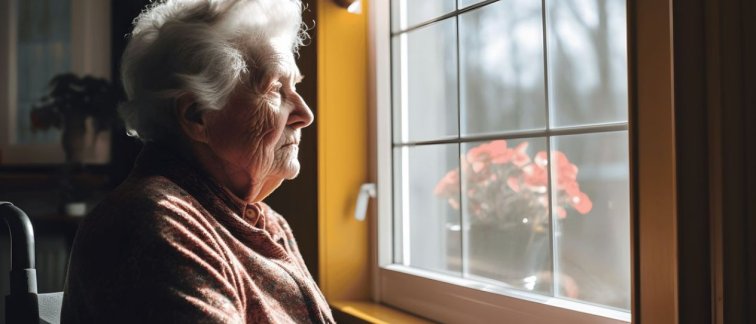"Recently, and especially during the COVID-19 pandemic, there is more attention for the potential harmful effects of loneliness and social isolation on the health of older people. We wanted to see how far these effects went and saw that all kinds of reduced social functioning, such as loneliness, social isolation and lack of social support, were associated with physical decline in older adults," says Hoogendijk.
Led by Peter Hanlon, clinical research fellow at the University of Glasgow, along with researchers from Amsterdam UMC, Canada, Australia and Sweden, researchers analysed the relationship between social functioning and physical frailty in older adults. "Frailty refers to a lot of different forms of physical deterioration, such as weight loss, reduced walking speed and decrease in muscle strength. These can all then have an effect on, for example, how likely you are to fall," says Hanlon.
Previous research has already indicated that frailty can lead to a decrease in social contact, "In some cases, physical vulnerability can also cause people to lose social contacts or become lonelier, for example because they become less mobile," says Hoogendijk. This research shows that this relationship can also be reversed, with a decrease in social contact leading to frailty.
Impaired social functioning can have harmful effects on health, with the US Surgeon General saying last year that loneliness is just as harmful as smoking 15 cigarettes per day. "We know that people with feelings of loneliness or with a lack of social contacts have a higher risk of, amongst others, depression and various chronic diseases. For example, a lack of social contact can have a direct effect on the immune system, but it can also have an indirect effect on health, for example through an unhealthier lifestyle. We want to do more research into this in the coming period," says Hoogendijk.
Impaired social and physical functioning often occur at the same time. "Older people who are physically vulnerable often also have to deal with a decline in both social and mental functioning. As we are caring for older adults, we need to pay attention to all of these aspects," says Hanlon. He concludes: "Loneliness, for example, is not an easy problem to solve. However, there is more and more knowledge available about possible effective interventions, including activities that support older people to increase their social connections."

